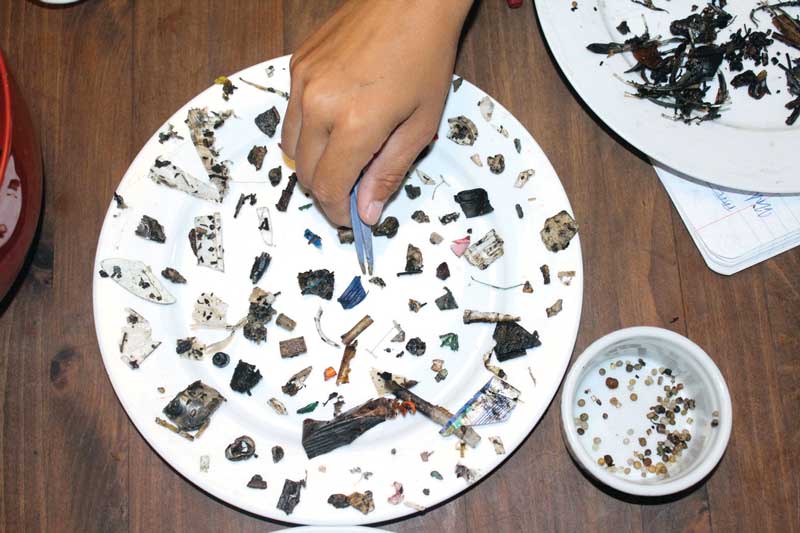If you think plastics don’t degrade, think again. Microplastics are very small pieces of plastic, less than 5mm in size, that are the result of larger plastic products partially decomposing from sunlight, heat, and wave action. They can be ingested by small marine organisms and potentially make their way up the food chain.

Perhaps you’ve heard of the Great Pacific Garbage Patch, a massive wind-driven circular current with floating plastic litter trapped at the center? An estimated eight million tons of plastic worldwide enters waterways from coastal communities every year. And of course it’s not just a problem out in the middle of the Pacific Ocean. Plastics and microplastics are a problem in the Chesapeake Bay, too.
As boaters, we have both the opportunity and the responsibility to reduce plastics in the waterways. Sure, it might take a little extra effort, but those who love the liquid lifestyle are motivated to double down on “reduce, reuse, and recycle.” So what can boaters do? BoatU.S. Foundation offers these three suggestions:
1. Pack for the boat trip
Fill up and carry aboard an insulated container that can hold enough water for the day, and invest in a set of non-breakable plates, cutlery, and food and drink containers to limit single-use plastics aboard.
2. Get your crew involved
Before heading out, provide your crew with a pre-departure briefing and remind them not to put anything overboard. Boats are notoriously windy places, and popular anchorages are particularly prone to wind-driven pollution. When underway, secure possessions as well as any trash below deck or in a storage container. If anything is lost overboard, or if you come across plastic pollution, conduct a man-overboard drill to retrieve the item whenever it’s possible to do so safely.
3. Recycle
If your marina or boat club doesn’t have a recycling program for plastics and other recyclables, ask about starting one. Ensure all your boating guests know where recyclables go. When fishing, do your best to retrieve fishing line snags, and when re-spooling, recycle the old line instead of throwing it in the trash.